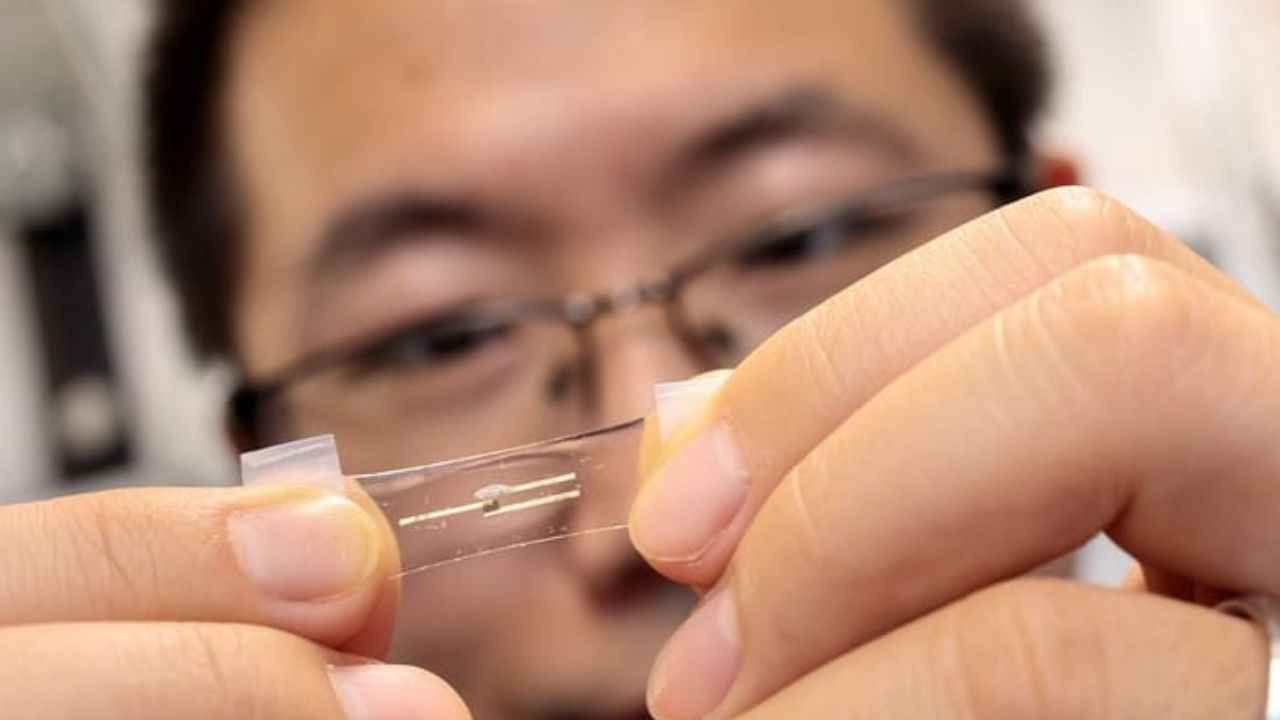
A team of US researchers have developed a flexible, stretchable computing chip that processes information by mimicking the human brain.
The device, described in the journal Matter, aims to change the way health data is processed.
“With this work we’ve bridged wearable technology with artificial intelligence and machine learning to create a powerful device which can analyse health data right on our own bodies,” said Sihong Wang, a materials scientist and Assistant Professor of Molecular Engineering at the University of Chicago.
Currently, getting an in-depth profile about your health requires a visit to a hospital or clinic. In the future, Wang said, people’s health could be tracked continuously by wearable electronics that can detect diseases even before symptoms appear.
Wang’s team designed a chip that could collect data from multiple biosensors and draw conclusions about a person’s health using cutting-edge machine learning approaches.
Importantly, they wanted it to be wearable on the body and integrate seamlessly with skin.
“With a smart watch, there’s always a gap,” said Wang. “We wanted something that can achieve very intimate contact and accommodate the movement of skin.”
Wang and his team turned to polymers, which can be used to build semiconductors and electrochemical transistors but also have the ability to stretch and bend.
They assembled polymers into a device that allowed the artificial-intelligence-based analysis of health data.
Rather than working like a typical computer, the chip, which is called a neuromorphic computing chip, functions more like a human brain that is able to both store and analyse data in an integrated way.
To test the utility of their new device, Wang’s group used it to analyse electrocardiogram (ECG) data representing the electrical activity of the human heart.
They trained the device to classify ECGs into five categories — healthy or four types of abnormal signals. Then, they tested it on new ECGs. Whether or not the chip was stretched or bent, they showed, it could accurately classify the heartbeats.
More work is needed to test the power of the device in deducing patterns of health and disease.
But eventually, it could be used either to send patients or clinicians alerts, or to automatically tweak medications.
“If you can get real-time information on blood pressure, for instance, this device could very intelligently make decisions about when to adjust the patient’s blood pressure medication levels,” said Wang.
That kind of automatic feedback loop is already used by some implantable insulin pumps, he added.
(Except for the headline, the rest of this IANS article is un-edited)
For more technology news, product reviews, sci-tech features and updates, keep reading Digit.in
Stay connected with us on social media platform for instant update click here to join our Twitter, & Facebook
We are now on Telegram. Click here to join our channel (@TechiUpdate) and stay updated with the latest Technology headlines.
For all the latest Technology News Click Here
For the latest news and updates, follow us on Google News.
